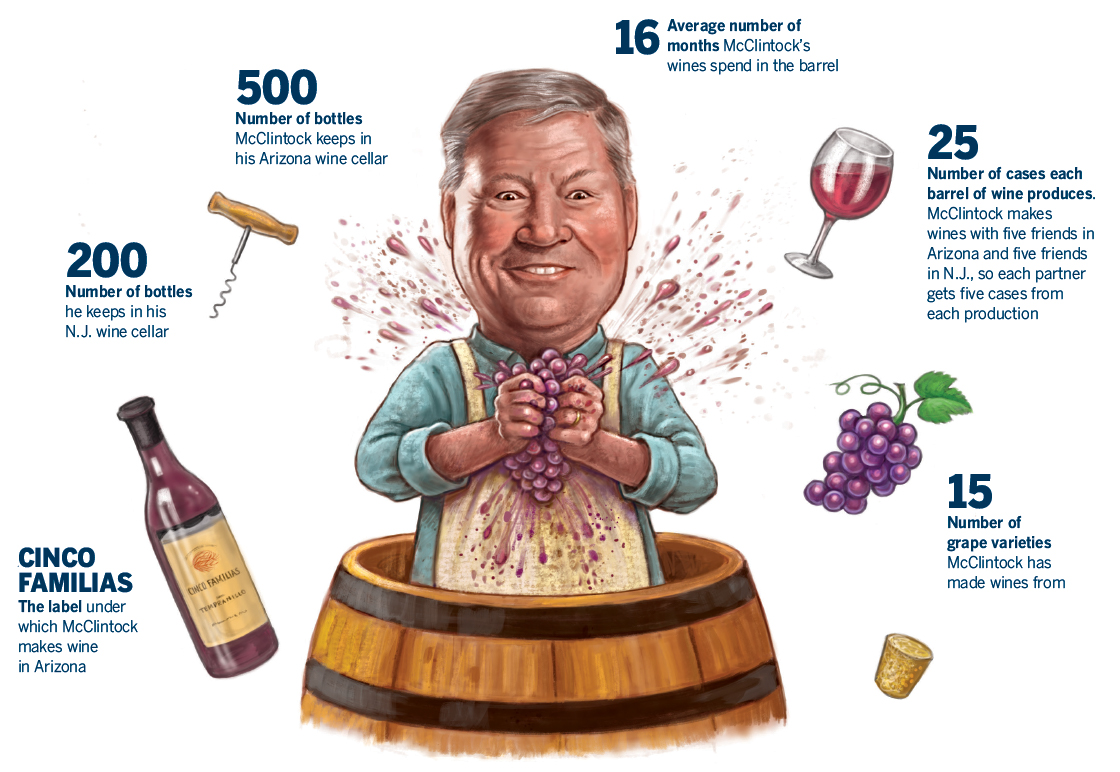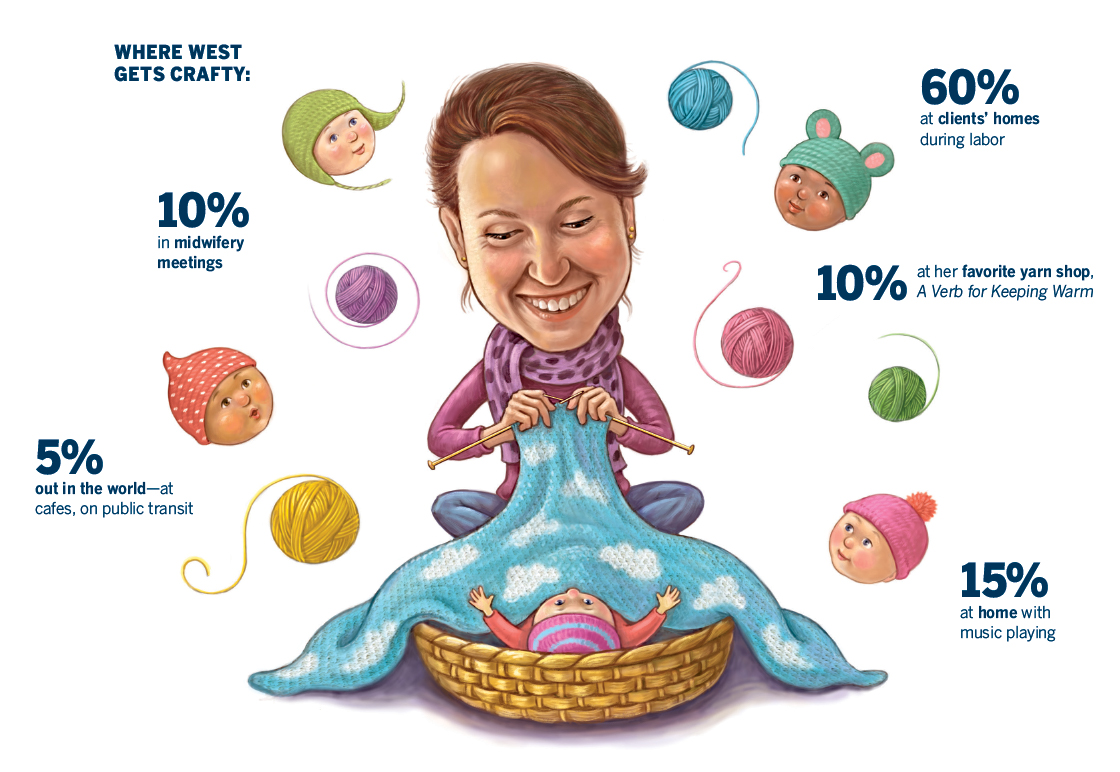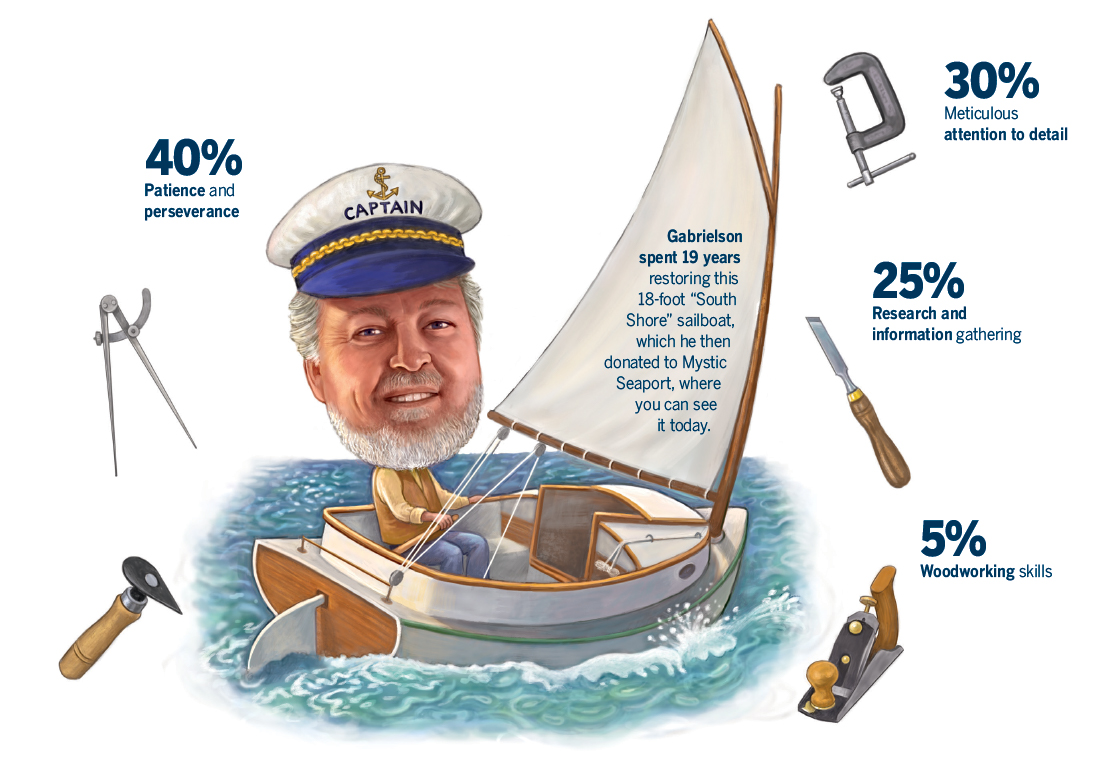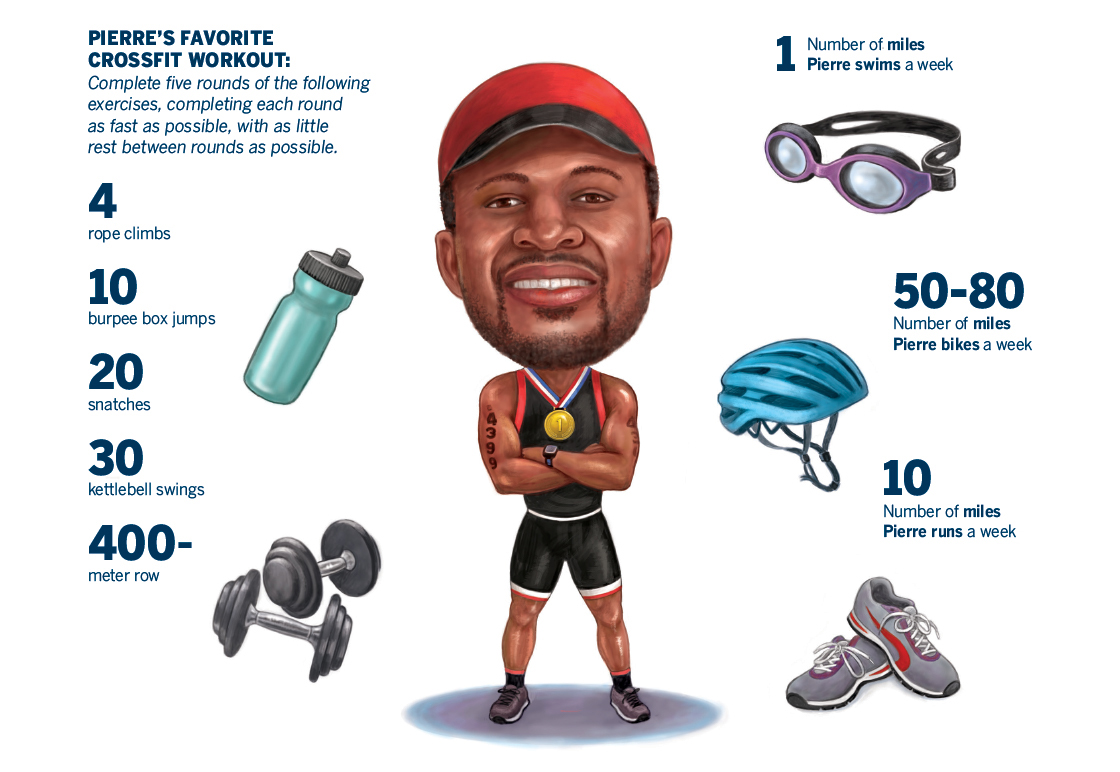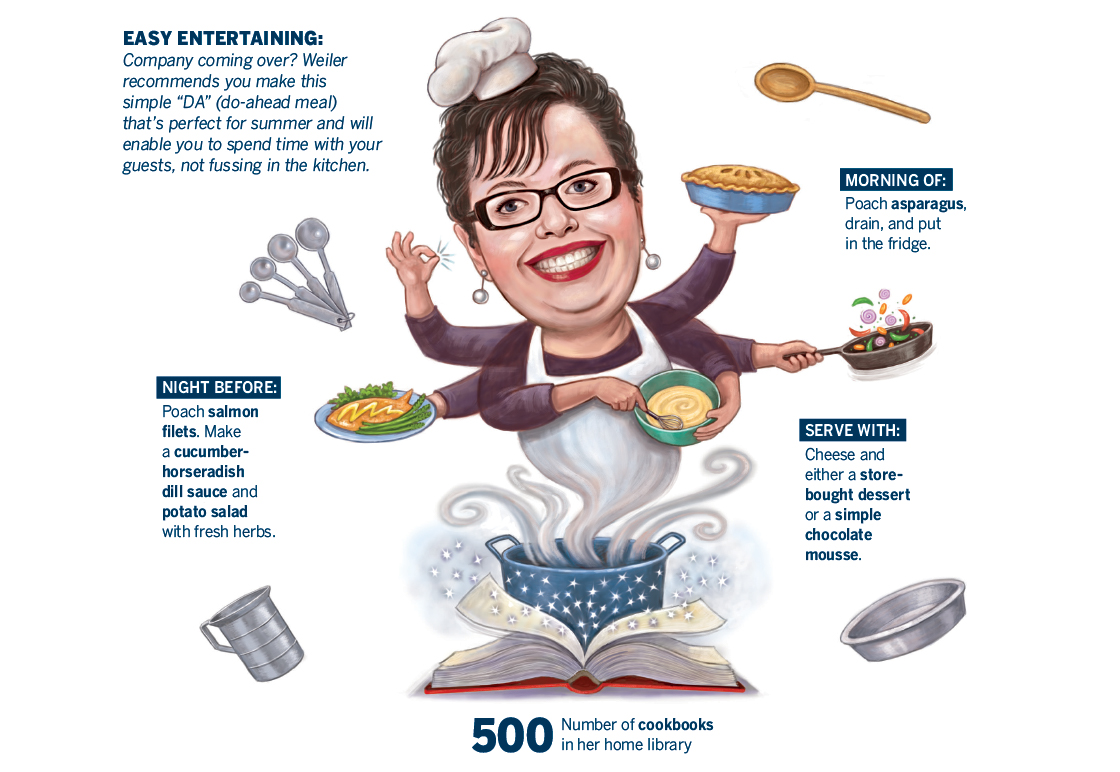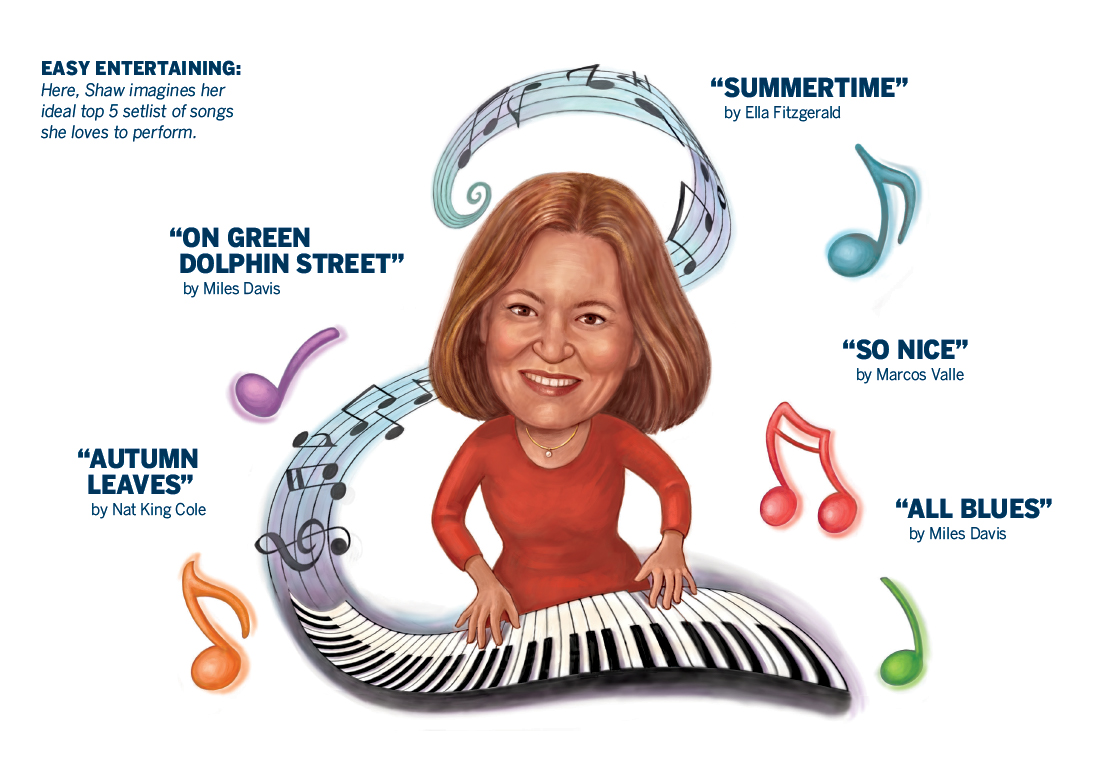Pards at Play
It’s time to abandon the notion that playtime is a frivolous, juvenile endeavor reserved for elementary-school playgrounds and Silicon Valley upstarts.
But, you argue, you are too busy, too plugged in, too scheduled, too buried in obligations, responsibilities, and emails to even think about play—let alone to actually pursue a hobby.
But, experts argue back, that’s precisely why you should do it. Making time for an activity that brings you joy and personal satisfaction rewards you with significant and long-lasting benefits.
“Fun and play tend to get left behind in our childhoods,” says Kat Longshore ’07, a mental performance coach who teaches sports psychology at the College. “But research shows that participation in a hobby or recreational activity reduces stress, lowers anxiety, and increases feelings of happiness. Having a positive mindset doesn’t just make it easier to get through a demanding day or deal with challenges immediately ahead of you; it’s been linked to a longer life span and better overall quality of life.”
The key to reaping these rewards, says renowned psychologist Mihaly Csikszentmihalyi, is to choose a leisure pursuit that helps you achieve “flow,” a mental state in which you are fully immersed and engaged in an activity that brings you a sense of enjoyment and accomplishment. While binge-watching Netflix or scrolling through Instagram might help you unwind and disconnect, those activities are generally too passive to trigger the reward center of your brain in the same way that playing chess or growing a garden will.
“The science shows that there is a chemical change in the brain when you achieve flow,” he says. “In that positive state of mind, endorphins flood your brain and make you feel happiness. It’s an optimal experience in which you feel alert, focused, creative, and productive.”
Endorphin rushes are often associated with physical activities—finishing a triathlon or jumping out of a plane. But Csikszentmihalyi says this state of mind can come from any activity that mentally stimulates you, absorbs you, and offers personal satisfaction, like actively learning about a subject that interests you, like food or wine.
So if you want to feel happier and calmer, and enhance your overall quality of life, it’s time to get serious about play. Need some inspiration? Here are eight alums with real passion for their past times.
Game Rules
Mental performance coach Kat Longshore ’07 offers two pieces of advice:
- Keep it a hobby – “If you enjoy something, there can be a temptation to turn it into a career, especially if you are unhappy in your current job. But there is a danger you will no longer enjoy the activity once it turns into work. The power of a hobby is that it’s not an obligation.”
- Keep it fun – “I got into running, and I got caught up in my times and always trying to push myself farther and faster. I wasn’t enjoying it at all anymore, so I took a step back. Now I run for fun, not time or distance. It’s important to maintain the balance and ensure your hobby is not a source of stress.”
The “Cork Dork”: Mike McClintock ’71
When McClintock was in his 20s, he realized he lacked a skill that would help him be successful in his work as a sales rep for Merck pharmaceuticals. “I was organizing and hosting events for physicians, and it seemed like all they would talk about was wine,” McClintock says. “I thought to myself, if I’m going to be planning events and dinners for these doctors, I better learn about wine.” So he became a student—initially, a self-educated one. He devoured books and poured over issues of Wine Spectator. Then he ventured out, traveling to celebrated wine regions (Napa and Sonoma plus France, Spain, Portugal, Italy, Switzerland, Germany, Argentina, Australia) to expand his knowledge base—and his palate. Before long, he became the vino authority among friends and colleagues. McClintock was the guy you called when planning a party or gifting a bottle. Those in his social circle still look forward to receiving his annual ranking of “best value wines,” which he compiles and shares every December.
Retiring in 2005 enabled McClintock to take his enthusiast stature up a notch as a full-fledged wine maker. Today, he splits his time between Scottsdale, Arizona, and Union Beach, N.J., where he produces batches of reds and whites a barrel at a time with sets of friends in location, using the facilities and equipment of local vineyards. He’s involved at every step of the process, from the destemming and hand-crushing of the grapes, to choosing between a French Oak or Hungarian Oak barrel, to the labeling of the bottles.
At one point, McClintock, who studied biochemistry and played football at Lafayette, considered ramping up production and selling his libations. “But I realized that would become an aggravation,” he says. “It’s a wonderful hobby. I have a love affair with it. I think it’s important not to retire from something but to something. I am very intellectually stimulated and it’s introduced me to a new group of friends who enjoy making wine and talking about wine. I feel fortunate to have found this passion.”
The Crafter: Morgan West ’13
West is in the business of hurrying up and waiting. As a midwife, she’s at the beck and call of her clients—and their precious cargo, whose arrivals are rarely predictable or punctual. And so, West always has a fiber-arts craft project in tow when she’s heading to a client’s home to assist with a homebirth. West’s knitting, crocheting, sewing, and embroidery are creative outlets and soothing pastimes that complement her profession well.
“I’m often at long labors, so it’s helpful that I have a portable hobby to bring with me,” says West, who has delivered more than 100 babies in the Berkeley, Calif., area. “It keeps me occupied while still enabling me to be present with my clients and focus on them. I can set down what I’m working on when I need to attend to a client. I suppose it’s a very stereotypical picture to imagine—a midwife in the corner of a room knitting away while an expectant mom does her labor dance!”
West learned how to knit while at Lafayette. The neuroscience major gathered regularly with floormates in Ruef to color, craft, and sew.
“Doing anything with my hands tends to take me out of my head and relax me,” she says. “I find it really therapeutic and meditative. It’s a way to slow down and connect with someone while creating something. I think that’s so important, especially in college and in life when things are so go, go, go.”
Another aspect West appreciates about her hobby is that it’s an extension of her role as caregiver. She knits tiny caps for all the new arrivals she ushers into the world, and she regularly gifts her projects—blankets, scarves, artwork—to friends and people in her community.
“I feel like it’s a devotional practice,” she says. “When I’m making something for someone, I’m thinking about them when planning the project, when buying the materials, and when making it. It’s gratifying to have something that allows me to be creative while acknowledging the importance of another person. I think that’s another connection with my work: In both midwifery and crafting, I’m supporting and caring for another life.”
The Captain: Guy Gabrielson ’77
Gabrielson is on a mission, fueled by a love of art, history, engineering, and nature: to build a 14-foot wooden sailboat. “To build something from scratch that can float and sail and withstand the elements, it’s quite an accomplishment,” he says. “It’s the most difficult thing I’ve ever done. I believe that a classic wooden sailboat is one of the most beautiful creations man has ever made. Building one is my obsession.”
It’s an obsession nearly 60 years in the making. Gabrielson’s father was an avid sailor who gave his son his own workbench, tools, and the encouragement to tinker and create. As a boy, when Gabrielson wasn’t out on the water, he was at that workbench, assembling boat models from anything he could find—plastic, wood, tissue paper, tape. Gabrielson’s methods and projects evolved to become more sophisticated over time. He credits his education at Lafayette, where he majored in Spanish, for instilling in him an appreciation for the intersection of art, history, and science. He went on to pursue an additional degree in architectural design to bring those things together.
During his years as an architect—first at a commercial firm doing large-scale projects, and later on his own doing woodworking and home renovations—his boats were always his reprieve. The barn outside his rural Woodbury, Conn., cape cod houses his workshop, where he has repaired and restored seven old boats, with the mindset that historical accuracy and beauty are as essential as functionality. The barn also serves as his boathouse; it currently holds six small boats.
All the lessons and skills gained from his decades of model building and preservation work are now steering him toward his ultimate goal: to go from “aspiring boat builder” to “boat builder” by year’s end.
“I see this as the culmination of all my previous education and life experiences,” he says. “This hobby allows me to get lost in my own mind; it gives me an outlet, an escape. Designing and building for others as a professional is rewarding, but it’s nice to have the space and opportunity to create anything you want and to only be beholden to yourself.”
The Athlete: Nkrumah Pierre ’06
Pierre only knows how to operate at one speed: full-on, all-out. Since graduating, his career has been on a steep, upward trajectory in the worlds of commercial real estate, finance, executive recruitment, and corporate consulting and coaching. As he transitioned from role to role, making connections and expanding his professional network, he realized a common thread among the executives he met: They didn’t just work hard; they played hard.
“As I was moving through corporate America, I was meeting all these successful people who were running, biking, swimming, and doing triathlons,” says Pierre, director for business development at EisnerAmper in Manhattan. “And so I decided to mimic them.”
If he makes it sound simple, that’s because for Pierre, a lifelong athlete, it was. Sure, there was the small detail of needing to learn how to swim. In an ocean. With other athletes’ arms punching and elbows flying. But the former high school soccer, lacrosse, and basketball player, who also skied, snowboarded, lifted weights, and competed in obstacle-course-style running events, wasn’t daunted. He got in the pool, got on a road bike, got on a track, and today, he has eight triathlon finishes (a mix of sprint and Olympic distances) to his credit—and three more on his summer calendar. As if juggling three different athletic disciplines weren’t enough, Pierre also is a CrossFit devotee. He believes all the strength he builds squatting, pressing, and swinging kettlebells carries over to his running, biking, and swimming. There’s that—and the fact that he likes being in perpetual motion.
“I’m not myself when I miss a workout,” he says. “My wife will notice. My mood will be off. I won’t feel the same. I really need to get those endorphins, that release, that escape from the day-to-day grind. Exercise helps me clear my mind. Some of my best business ideas have come when I’m running, biking, or swimming. Sometimes it can be hard to find the time, especially now that I’m a father to a 1-year-old son, but I make it happen. There’s that saying: ‘If you need something done, give it to the busiest person.’”
The Chef: Ellen Weiler ’83
Weiler loves to read cookbooks. And grocery shop. And cook. And bake. And grill. And entertain. All of it. If the time and effort she puts into selecting the perfect recipe, buying the ingredients, and creating a meal for you make you feel nourished and appreciated, well, then, it’s her heart that’s full. “Just yesterday, a friend came over, and I made General Lafayette’s gingerbread cake for her,” Weiler says. “I planned it so that it was warm right from the oven when she arrived. Cooking is my way of caring for people and showing my love.”
Weiler credits her late mother-in-law, a talented home cook in her own right, for introducing Weiler to the culinary arts and giving her the encouragement to experiment in the kitchen. “I learn from my failures more than my successes,” she says.
But for Weiler, it’s always been more than just combining the right ingredients to create a delicious, nutritious dish. “Eating is about more than just sustenance,” she says. “Food nourishes the soul as much as the body. I love that you can bring people together who have nothing in common and have a shared experience together over a meal. It’s a way of connecting with each other.”
Weiler connects with people in many ways. She regularly entertains at her Ambler, Pa., home throughout the year. She also has catered about 50 events for the College, including welcome events for incoming students, fall picnics, and alumni gatherings. She teaches cooking classes at Council of Lafayette Women conferences. (Sample topics: “Entertaining with Pizzazz,” “Love at First Bite: Exceptional Summertime Cuisine for Sun, Surf & Sand.”) She regularly donates home-cooked meals and baked goods to those in need through several charity organizations (including the Breathing Room Foundation, founded by Bernard Fitzgerald ’81).
“I really believe that we need to leave our mark and leave the world a better place,” she says. “I’m fortunate to have quality food and the ability to feed my family and friends. I don’t take that for granted, and I want to pay it forward. I care about food, and I care about people.”
The Skydiver: Kevin Doty ’13
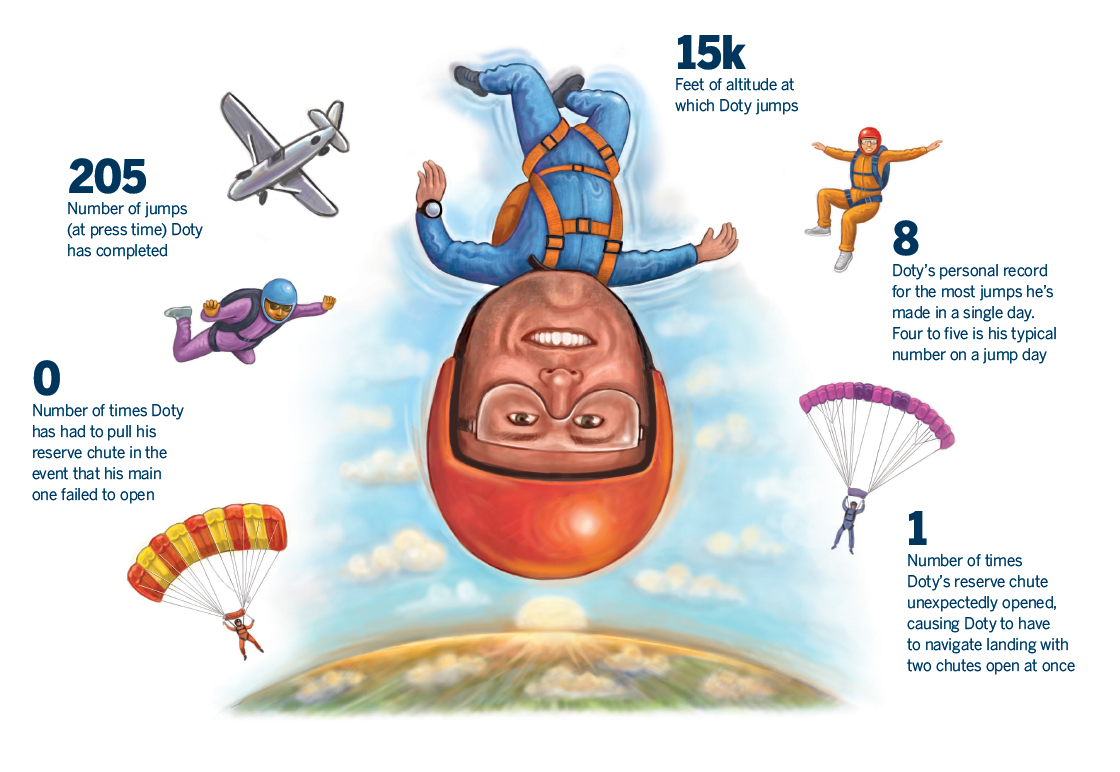 Doty was a serious engineering student at Lafayette—but his head was still in the clouds. “Whenever I’d have downtime in my engineering labs, I’d watch YouTube videos of people skydiving,” says Doty, who was on the aeronautics design team and did a wind-tunnel research project on skydiving and base-jumping. “I just always loved everything about it, and I knew that one day I really wanted to skydive.”
Doty was a serious engineering student at Lafayette—but his head was still in the clouds. “Whenever I’d have downtime in my engineering labs, I’d watch YouTube videos of people skydiving,” says Doty, who was on the aeronautics design team and did a wind-tunnel research project on skydiving and base-jumping. “I just always loved everything about it, and I knew that one day I really wanted to skydive.”
After graduation, he temporarily grounded his airborne ambitions in order to focus on his career; he had accepted a sales engineer position in Albany, N.Y., with Victaulic. By the summer of 2014, he was finally able to take the leap. “I remember my first jump—it was total sensory overload,” he says. “But an absolute thrill—just so much fun!” Doty became a regular at his local drop zone, where he fell into a community of like-minded adventurers. Over the next few years, Doty did several group jumping excursions in Florida, South Carolina, Maine, Connecticut, and Massachusetts (where he now works for Victaulic outside Boston).
Jumping with others isn’t just about the camaraderie. It enables you to evolve your skill set, Doty says. “For me, now, it’s less of an adrenaline rush, and it’s more about the challenge,” he says. “That surprises people: They think you just jump. But when you are jumping with 20 to 25 people, you create a jump plan. You talk about who is going to do what. You can move around during freefall. You can slide forward or flip or spin. You coordinate your moves to make sure you are organized and avoid any mid-air collisions. Creating that plan and executing it adds to the fun of it.”
As for his next move, Doty has taken flying lessons and one day would love to own a plane he can pilot. But for now, he’s happy to be jumping out of one. Weather permitting, he makes it to the drop zone twice a month. “It is very hard to describe the feeling of exiting the door of a plane and entering freefall,” he says. “It’s this sense of freedom and relaxation. It really takes your mind off everything—work, personal life. There is nothing else like it.”
The Musician: Cara Shaw ’85
By day, Shaw is a high school guidance counselor, advising teens on course selections and college applications. By night, she’s living out her own teenage fantasy, playing piano in a band for live audiences at bars, restaurants, and private parties in and around Raleigh, N.C. “My friends joke that I’m having my second adolescence here,” she says. “I’m always off to a rehearsal or a gig.”
Shaw played saxophone in high school and jazz piano at Lafayette, where she majored in anthropology & sociology and music. She taught music for a few years but ultimately shifted into school counseling, her career for the past 20 years. As any parent can attest, juggling work and family life can be demanding and all-consuming. And so Shaw’s instruments took a backseat when her kids were young. But once her two sons were teenagers—and musicians themselves—Shaw decided it was time to play again.
“When you are actively raising kids while working full time, it can be very hard to maintain a hobby,” she says. “But I appreciate now how important it is to have something that gives you a feeling of self and identity outside the home and office. I enjoy my job and love my family, but being a musician is part of who I am.”
Shaw performs with four different bands, which means she has a gig most Friday or Saturday nights. Depending on the engagement, she could be playing Glen Miller-era big-band tunes or R&B or jazz. Occasionally, she jumps into high school jazz-band rehearsal to join students for a number or two. “I think it’s fun for the kids to see a different side of me,” she says. “I also think it’s important for me to model that your extra-curricular interests don’t have to end when you graduate. My favorite activity from high school is still a great source of personal fulfillment for me.”
Although being a professional musician was her childhood dream, Shaw has no regrets about her career path. “Having another job with a stable income means that I don’t have the pressure to accept every gig or feel stressed by it at all,” she says. “I can do it when I want and as often as I want, and that keeps it fun and freeing.”
